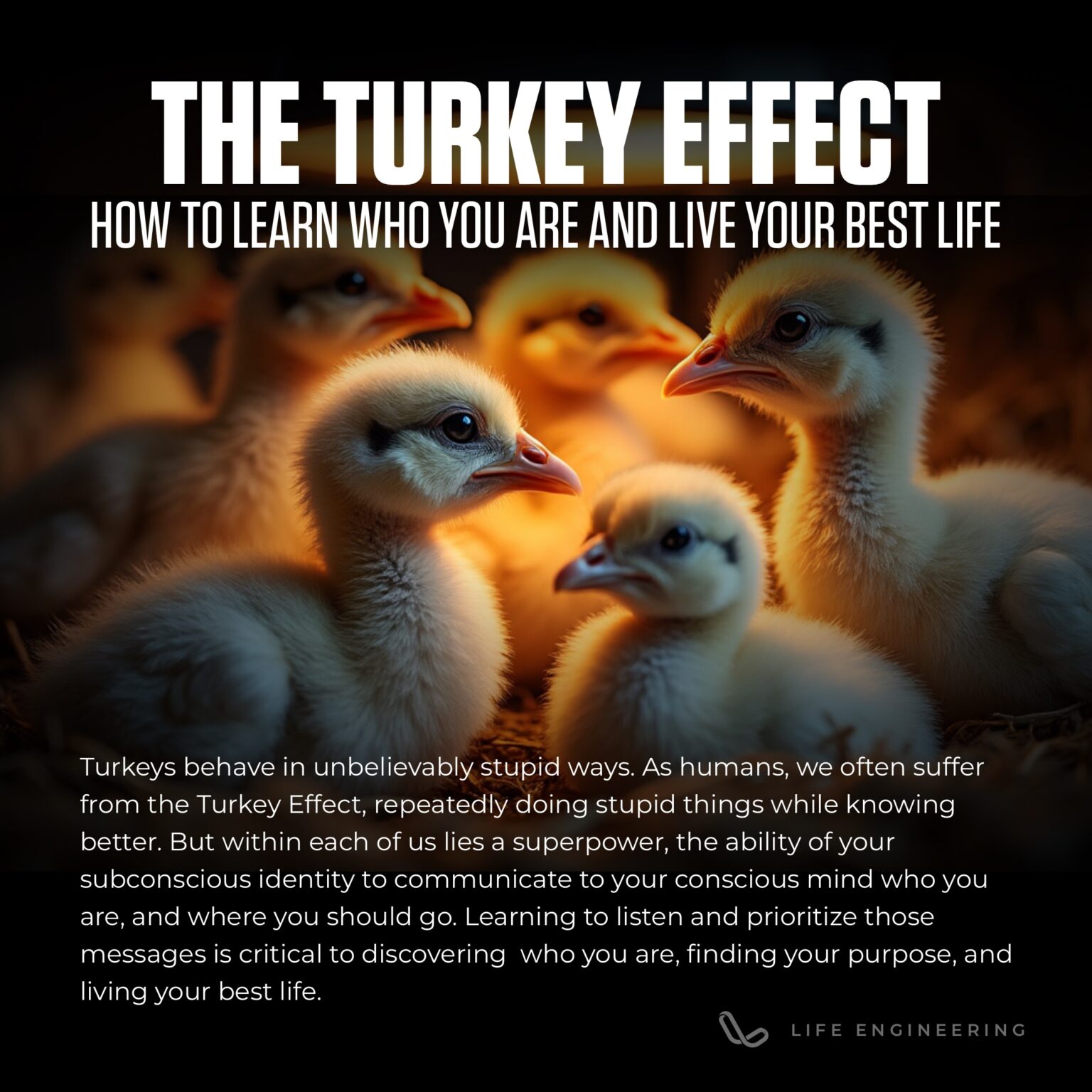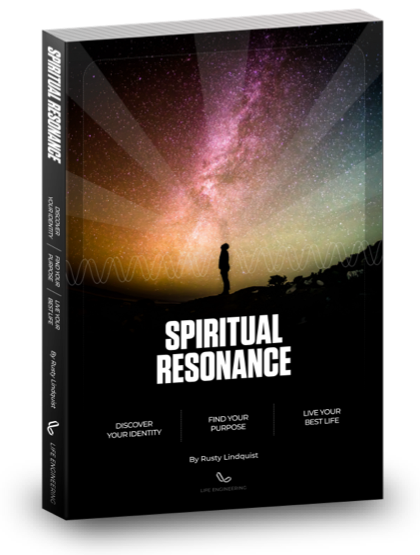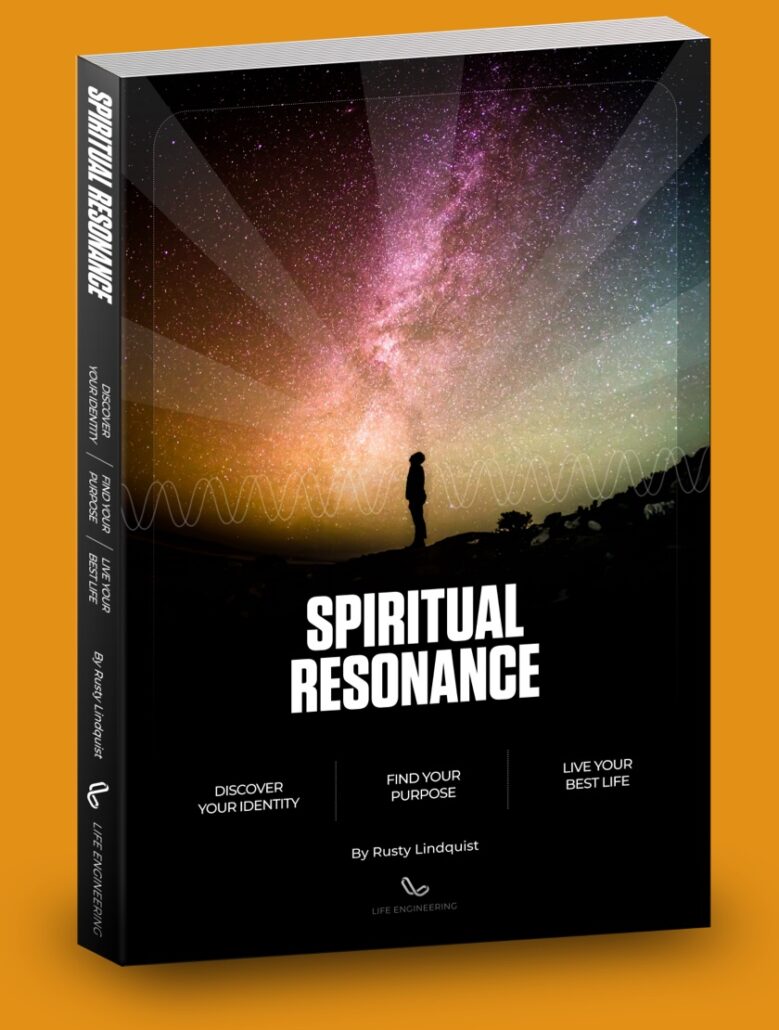The turkey effect
How to learn who you are and live your best life
raising turkeys
People often wonder “who am I?”; “what’s my purpose”; “what am I good at?”; and “where should I go from here?” I had an enlightening experience with this while trying to raise turkeys as a boy.
(Note, this is an excerpt from the final chapter of my book Spiritual Resonance. If you’d like to read the whole thing, I’d like to give it to you. You can download your free copy here.)
When I was 11, I was adopted by a new family. They loved raising animals… all kinds of animals. We had cats. Lots and lots of cats… like 20. They were all outside cats and helped keep the rodents away.
We had dogs, too. And chickens… lots of chickens. Several types of chickens, in fact. We also had ducks. Just two of them, with a cute little duck pond. I always thought it was funny, because our ducks would chase our dogs. It all seemed a little backward.
We even had pigs. At one point we decided we wanted to raise turkeys.
We all got into the car and took the long drive into town to a place we found that sold turkeys and the like. We told the nice man we wanted to buy some turkeys.
I remember he kind of gave us a meaningful look, almost as if to ask, “Are you sure?”
He showed us to the turkey enclosure and we picked out about a dozen baby turkeys.
The gentleman told us that we needed a little turkey trough to water them with. We didn’t really understand, because we just figured we could put a bowl out and they’d drink from the bowl. But we wanted to be good little turkey-people, so we obeyed.
He said that we needed to take extra care of turkeys, because they tend to die really easily. We asked why. He shrugged and replied simply, “Because they’re stupid.”
We laughed at his little joke, bought the baby turkeys, and brought them home.
THE PEN
Now that we had our baby turkeys, we needed a place for them to stay. We wanted to protect them from the coyotes, so we figured we’d put the turkeys in the chicken coop with the chickens. It was well fortified.
That said, we also knew that chickens are ferocious beasts.
You may think I’m kidding, but I’m not. You’d be amazed at what bunch of chickens will do to a foreign creature it thinks of as a threat. They act like piranhas. I remember one day a snake “wandered” into the coop, and it took less than 60 seconds before it was entirely picked apart and eaten. It was rather terrifying.
Understanding this, we set about building a little box for the baby turkeys to live in, protecting them from their mean chicken neighbors.
It was nothing special, just a little box made out of wood. It was about four feet long by two feet wide and maybe a foot deep. We stretched chicken wire across the top so the chickens couldn’t peck at them.
We also knew it could get cold at night, so we set a heat lamp against the chicken wire and left it on so they would have a cozy place to come warm up.
We put water in their precious little turkey trough—apparently a key ingredient for raising turkeys—and put a bowl of food next to it, filled with turkey feed.
Pleased with our efforts, we went to bed for the night.
DISASTER
The next morning we woke up and went out to feed the animals and check on the turkeys. We peered down into the pen to see what had happened over night. To our dismay, nearly half of our turkeys had died!
We couldn’t believe it. The turkey man was right. He had said turkeys were stupid, but we hadn’t taken him very seriously. Now we were beginning to understand.
A couple of the turkeys had clearly died from overheating. They were laying directly under the heat lamp, and you could smell their burned feathers.
They apparently didn’t have enough mental processing power to think, “Oh, this is too hot,” and then move just a little bit farther away. Instead, they just sat there, slowly roasting until they died.
On the other hand, another couple of turkeys had frozen to death, on the total opposite side of the box. Their rigid little bodies were lying on the straw, only a foot or two away from the saving warmth of the heat lamp. Again, apparently they weren’t smart enough to register that they were cold, sense the heat, and move towards it.
Another couple of turkeys had died next to the food container. We didn’t know what that was about, but we were dumbfounded.
Never, in all our animal raising, had we experienced anything like it. It was like their brains had no capacity for self-preservation.
Saddened by our loss of so many cute little turkeys, we went to visit the turkey man and told him about what had happened. He looked at us and said, “I told you, they’re stupid.”
We asked about the ones who had died next to the food, and he asked how much food we put in there. We told him we just filled the bowl and left it. He then informed us that if you put too much food in the bowl, the turkeys will literally just keep eating until they die. Apparently, their stomachs eventually burst, and they die. They don’t know how to stop eating.
Determined, we bought some new turkeys and brought them home to replace the ones we’d lost.
We adjusted the heat lamp so it was farther away and more central to the box, allowing its heat to be distributed evenly over the pen. We carefully measured their food, and only gave them just enough for the night.
To our delight, we went a day or two without losing another turkey.
Then one day, someone (I won’t say who, but it *definitely* wasn’t me) accidentally stepped on the turkey trough. The turkey trough consists of a 6-inch long container to hold the water, with a lid over the top. The lid has little holes in it. The holes are small enough that the beaks can get through to access the water, but small enough that their heads can’t fit through.
I… er… someone accidentally stepped on the turkey trough and broke the lid.
Figuring it would be fine, this someone filled up the turkey trough and put it back into the box so they’d have water.
The next morning, to our dismay, several turkeys were found dead. They were standing next to the water trough, their heads submerged into the water.
Without the lid, the turkeys would simply plunge their whole head into the water and drink. But they’re not smart enough to realize that they need to pull their heads out.
We were flabbergasted.
Another time we had gone out after a rainstorm, and found that several of the turkeys had died again. Turkey Man told us that if turkeys aren’t covered by a roof, they’ll be so fascinated by the rain that they’ll look up, a raindrop will hit them on the beak, and they’ll drown.
Please understand, when Turkey Man says turkeys are stupid, this is not hyperbole.
THE MORAL OF THE STORY
First, I tell you this because if you are ever out in the wilderness and see a wild turkey, know that what you’re witnessing is a miracle. They’re like the real-world version of a unicorn.
Second, when you next sit down to eat turkey at Thanksgiving, please feel an extra degree of gratitude for the work that went into it. It’s not easy.
What is easy, though, is to make fun of turkeys and how stupid they are.
Unfortunately, there are plenty of times in our own lives when we suffer from “Turkey Effect” and do many of the same things.
There are times in life when we find ourselves out in the cold… isolated and adrift, freezing from the unforgiving nature of our circumstances. We know how cold it is and we know how miserable it is. We usually even have this vague sense of, “I bet it’s warmer over there” and what we need to do to get there—and yet we stay.
And there are other times we find ourselves burning up because of the heat of a toxic situation, a toxic relationship, or a toxic habit or lifestyle. We have a vague sense that, degree by degree, it’s killing us inside, but we stay.
There are times we gorge ourselves on “what is” instead of recognizing that we’ve gotten our fill and should now move on. And to be blunt, there are times we just need to pull our head out—when we need to wake up from the sleepy state of just getting by. We need to come out of autopilot and take action.
Spiritual Resonance acts as a pattern interrupt.
Spiritual Resonance are the emotional signals your subconscious identity sends to your conscious mind to guide you in life.
A “pattern interrupt” is a technique used in neuro-linguistic programming (NLP) and other fields of psychology and personal development. It refers to the act of disrupting a habitual thought or a pattern of behavior to create an opportunity for new responses or behaviors.
Our brains operate using patterns and routines. They become automatic, and those automatic processes govern the vast majority of our decisions. A pattern interrupt is a way to “break the cycle,” to wake up the conscious mind so it can step in and take control. This ensures that more of our lives are governed by deliberate choice, not automatic choice.
This is what signals of Spiritual Resonance do… they wake us up, they give us insights into who we are and where we should go from here. Those signals answer the questions: who am I, what’s my purpose, what am I good at, and where should I go from here?
the power of the subconscious
Your mind is a marvelous thing. Current estimates in psychology and neuroscience suggest that your conscious mind can process about 40 to 50 bits of information per second.
That’s an incredible amount of information to process all at once.
Interestingly, in that same amount of time the subconscious mind can process 20,000 bits per second! 20,000!
In the span of one second, your subconscious mind is processing 500 times more than you’re even capable of being conscious of!
So if your subconscious Spiritual Identity ever sends a signal to your conscious mind that there’s something you need to be aware of, it’s wise to wake up and take notice.
bringing it all together
Spiritual Resonance is just that: it’s how your subconscious self signals to your conscious mind that there’s something you need to pay attention to. It communicates to you who you are. It shows you your purpose, exposes your talents and points the way to go from here.
How does it do it? With simple emotions of warmth and energy.
Like the game “Hot and Cold,” there are simply times in life when it feels like you’re getting warmer. It’s an internal indication that you’re getting closer to something important.
This is Spiritual Resonance.
There’s just an energy you feel when you encounter certain things—certain people, places, activities, projects, or situations—that make it feel like you’re getting warmer.
This happens when the nature of those things in some way aligns with your own spiritual nature~~—~~your most authentic self. That alignment creates a feeling of warmth.
Sometimes these are strong, wake-you-up moments that move you to act. Other times they are subtle signals that barely register on your radar.
When you develop your ability to detect Spiritual Resonance, you wake up to the moment so that you can act consciously and be deliberate in life. It’s the surest way to learn who you are, find your purpose, and live a life that is meaningful and fulfilling.
(Note: To learn more about Spiritual Resonance and how to use it to figure out who you are, what your purpose is, and where you should go from here, download your free copy here.)

Please Share!
We care deeply about helping you live your best life.
So much so, that I want to give you a free copy of my most recent book, Spiritual Resonance, to help you fully discover yourself and live authentically.
We’ve also created an assessment to help you discover your Identity, and have trained AI to understand and talk to you about your specific results!




Responses